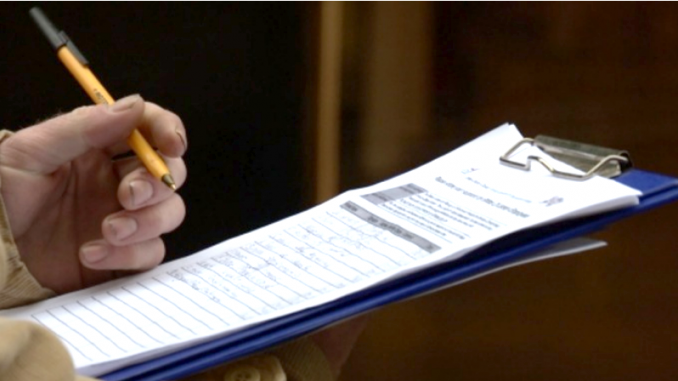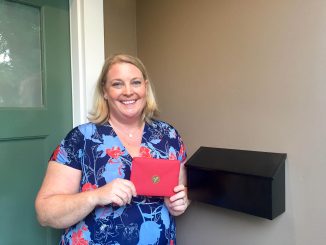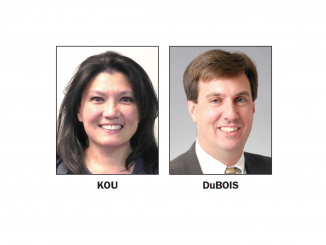
By the Daily Post staff
Two ballot initiatives appear headed for the fall ballot in Palo Alto, but in both cases the city is going to hire consultants to conduct an analysis of the pros and cons. And one of the initiatives, to broaden the city’s cap on office space construction, might be met with a counter ballot measure from City Council.
The council meeting on these two proposed ballot measures ended at 1:05 a.m. today (June 12), following heated debate and council member Cory Wolbach becoming upset because he claimed signature gatherers of the office cap measure had told people they needed the initiative because “Cory lied to us.”
The office cap measure would extend the city’s current limits on office construction, which now apply to downtown, the California Avenue district and along El Camino, to the Stanford Research Park, Stanford Shopping Center and the San Antonio, West Bayshore and East Embarcadero areas.
The other initiative by SEIU-United Healthcare Workers would limit the profits of health care providers to 115% of the sum of the “reasonable cost of direct patient care for a particular patient.” It would apply to Stanford Hospital, the union’s main target, but also to PAMF and other healthcare providers.
Council’s mission last night was to certify the sufficiency of the signatures on the petition drive, which had been verified previously by the county, and put the measures on the ballot.
The audience was packed with employees of Stanford Healthcare and PAMF. Stanford Healthcare CEO David Entwistle said the measure wouldn’t just apply to his operation but to many healthcare providers, even dentists, who practice in Palo Alto.
Council members said they were worried that if the measure passed, the city would be thrust into the position of regulating medical billing, and that would draw upon the city’s resources in possibly a big way.
Council agreed to have a consultant to prepare an “objective and fact-based” analysis of the proposed measure so that voters would know what the impact would be.
Things got heated with council took up the other initiative on the office cap.
Former councilman Greg Schmid, a proponent of the initiative, talked about the jobs-housing imbalance, which he said stands at 3:1.
Joe Hirsch, a long time advocate of slower growth, emphasized this wouldn’t be a moratorium on office construction, and that the limits proposed are well below actual office construction when you look back at it over 29 years.
Rita Vrhel, another resident who favors slower growth, said that when she was gathering signatures she heard how angry people are over office development. “There is so much anger in this town,” she said. She said that when she ran into people from neighboring towns, they said they hoped Palo Alto would pass this initiative so that their cities would follow suit.
Tiffany Griego, managing director of the research park, urged council to do an economic analysis of the proposed measure. She said businesses in the park paid $16.3 million in direct taxes to the city and another $15 million to Palo Alto’s schools.
Jean McCown, a Stanford official and a former mayor who said she was speaking as an individual, called the measure “radical downzoning” and its impacts “need to be understood.”
When she was on council in 1995, she led the campaign against Measure R, which would have eliminated some of council’s discretionary powers when it comes to zoning. Measure R failed. It was a battle between the same forces that are at play today, the neighborhood activists vs the developers.
She compared this initiative to Measure R, saying that residents want the council to have the ability to study issues and make decisions rather than locking in growth limits through the ballot box.
Then council members got into it.
Councilman Greg Scharff said he wanted an analysis to decide whether to put a counter measure on the ballot.
He proposed council form a committee to do the analysis with the assistance of a consultant. Councilman Adrian Fine seconded it.
Councilwoman Lydia Kou said she didn’t want to do the analysis because “we’re spending money we don’t have.”
Several people on council mentioned how the Comp Plan cost the city $3 million in consulting fees.
Council members Tom DuBois, Karen Holman and Eric Filseth all defended the initiative. Filseth said succinctly, “They got the signatures. It’s supposed to go on the ballot.”
At about 12:30 a.m., Fine began his remarks by saying he got an email from Zareen’s Restaurant, a popular Pakistani and Indian restaurant at 365 California Ave. He said Zareen’s felt the initiative is “anti-business” and if it passes it would hurt the Cal Ave area so much, they’d have to move to Redwood City.
Fine said the supposed anger over growth was being “manufactured” and that the problems cited by the initiative proponents were a “false narrative.”
He supported doing an analysis, saying, “We owe ourselves and the voters more information.”
Scharff pointed out that the research park provides as much sales tax revenue to the city as all of downtown, and he cited Tesla as a big generator of those funds.
Scharff and Kniss said that the initiative upends the process the city went through to write the Comprehensive Plan.
Kniss pointed out that this petition drive began four months after the Comp Plan update was approved. The Comp Plan doesn’t include an office cap for the research park. She said the decision to not include the park was made by council, and that’s how the community makes decisions in Palo Alto.
Kniss asked if something happened during those four months that made it necessary to change the Comp Plan in this way?
“Did I miss something?” she asked.
Perhaps the most explosive comments from the dais came from Wolbach, who claimed that signature gatherers had told people that they needed this initiative because “Cory lied to us.” He said he would like to talk to them in the rear of the council chambers.
The main motion to do an analysis with a council ad-hoc committee passed 5-4, with Greg Tanaka, Scharff, Kniss, Wolbach and Fine voting in favor.




Actually, I would appreciate an analysis of these measures before I vote. Too bad there wasn’t an analysis of the recall. If it had received more scrutiny, it wouldn’t have passed.
The Chamber of Commerce-backed councilmembers won’t stop packing this town full of development until we get skyscrapers and gridlock traffic. If we were able to recall Persky, maybe we can do the same for Fine, Tanaka and Wolbach!!
I too would like to see an analysis, but I don’t trust the City to produce one that will be fair and accurate. Weren’t they talking last night about outsourcing the work to Stanford? That would be a hoot-asking Stanford to study its own impact.
Let’s scrap the Comp Plan and start over! That’s what PASZ is saying. The Comp Plan Update took 12 years, countless hearings and millions of dollars, a citizens advisory committee, but hey who cares … PASZ didn’t get what they want, so throw it out and legislate through the ballot box.
And, tell me PASZ, how many public hearings did you hold before you circulated this initiative?
Did you bother to get any public or scrutiny input before you started to get signatures?
We had exhaustive public hearings before the CAC, PTC and Council on the Comp Plan. How many hearings did PASZ hold in the initiative?
Crickets!
Regarding Cory Wolbach, I do feel that he misrepresented himself when he ran and I didn’t expect that he would align himself with the developer-bought candidates. Now that he is running for re-election, I guess he will portray himself as being on the side of residents. Ha, ha.
This city council has an unfortunate habit of requesting costly “studies” as a distraction in the hopes that the issue will go away. 1,000+ residents complained about the bike lanes so they commissioned a $400,000 study and only now do we learn that neither the city nor the consultant has the data to finish the study. But we continue to spend tens of millions of $$$$$$ on unwanted and dangerous “traffic calming” and road furniture.
How DARE Sharff call this a “populist” rebellion when present and former city council members were involved and when only 30% of the residents are pleased with the conditions here! And that was before last night’s outrageous meeting.
PS: With a 30% approval rating, why should Wolbach be so shocked at voters’ opinion of him?
I think these two analyses will be political propaganda designed to defeat these measures. Would rather have the city save the money.